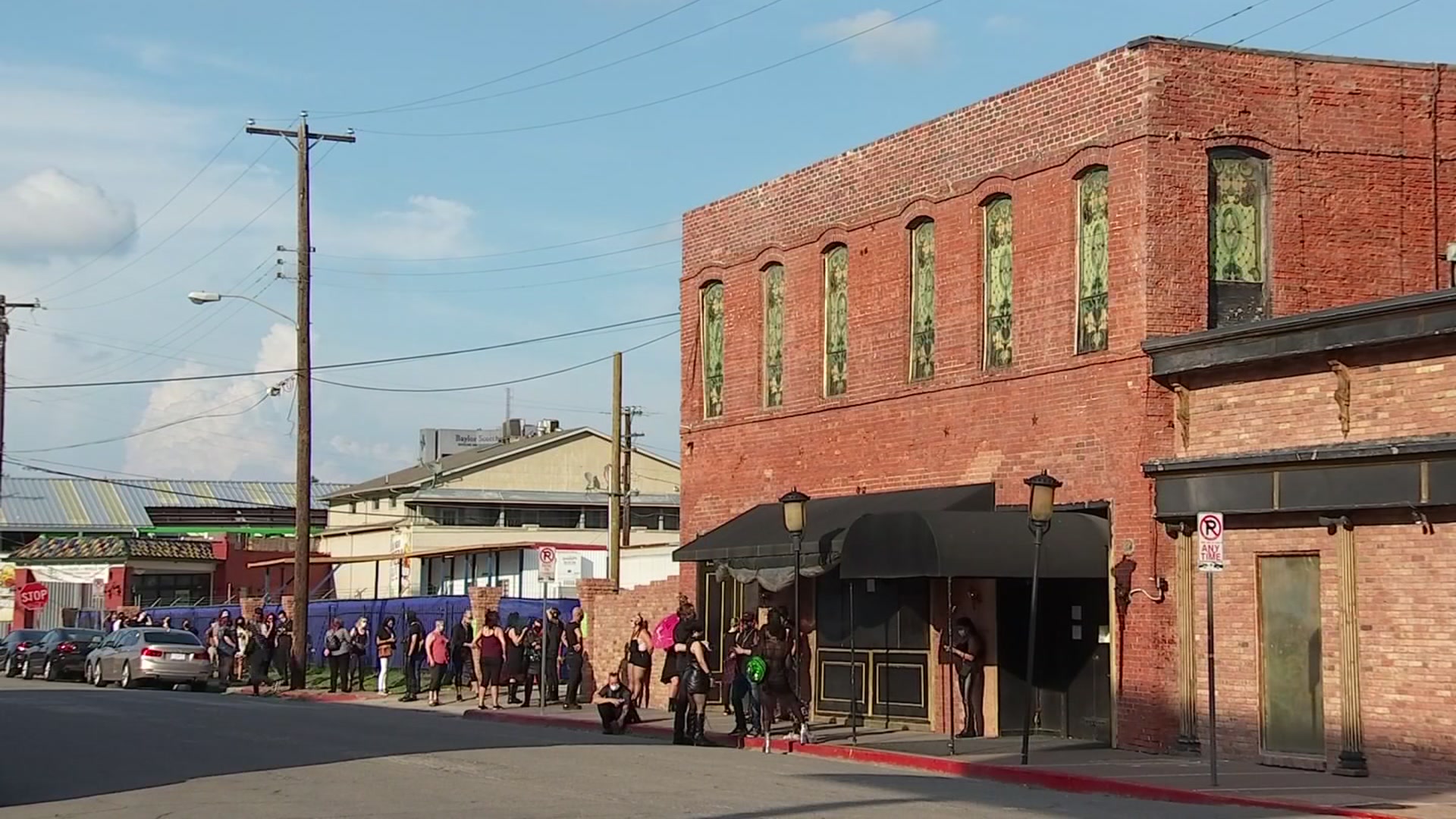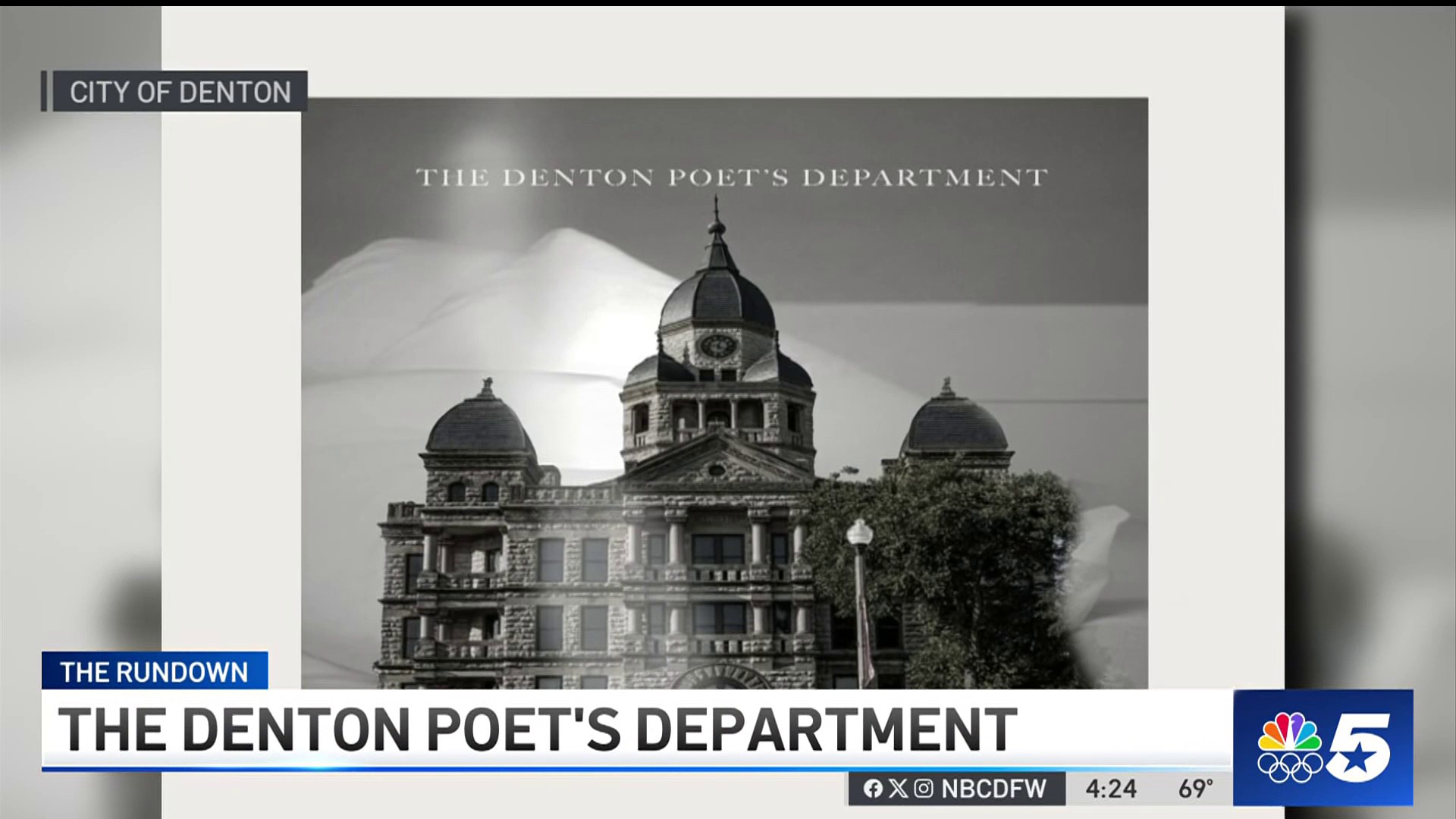A five-year journey through the canon of the greatest poet in the English language will come to an end in May.
The Complete Works of William Shakespeare, a partnership between the AT&T Performing Arts Center and Shakespeare Dallas, is a series of unabridged staged readings of William Shakespeare’s thirty-seven plays as well as his narrative poems and sonnets.
“The goal of the project was to present every word of Shakespeare. It seemed like such a gift for the community,” David Denson, AT&T Performing Arts Center’s Director of Programming, said.
The series will conclude with a reading of The Tempest on May 7 and 8 at the Wyly Theatre and Shakespeare’s sonnets on May 28 at the Studio Theatre.
The project was the brainchild of an enterprising theater couple, Cameron and Dana Cobb.
In 2011, Cameron Cobb was playing the title role in Shakespeare Dallas’ production of Hamlet and Dana Cobb was a marketing director with the AT&T Performing Arts Center. They hatched the idea of the series in their kitchen and convinced the arts institutions to consider taking on the long-term project. The AT&T Performing Arts Center provided the space and secured crucial financial support from the Mankoff Family Foundation. Shakespeare Dallas formulated a five-year plan to present the canon and provided artistic infrastructure.
The long-term nature of the project presented a specific challenge.
The Scene
“How do you keep it interesting over five years? You want to codify the process. At the same time, you need to keep each play unique and special,” Denson said. Jenni Stewart, Shakespeare Dallas’ Program and Operations Director, devised the formula. Each production had twenty hours of rehearsal and used a cast of fifteen actors. The history plays demanded slightly larger casts. The series ran from September to May, avoiding performances during Shakespeare Dallas’ busy summer season.
Careful planning went into deciding the order in which to present the works. “They were curated based on a few different factors. We wanted to make sure we had a balanced season of comedies, dramas and histories. We curated them by theme or subject,” Stewart explained.
The series began in September 2012 with Much Ado About Nothing as a welcome to Shakespeare’s work. Plays were grouped to explore themes such as fear of the other, madness and decay, corruption and loyalty, and the exploration of a character’s journey. The project grouped history plays to create a War of the Roses cycle and investigate the character of Falstaff. This final season focuses on mortality, redemption and a final, sweet goodbye.
Denson directed Julius Caesar in January 2014 and confesses the limited rehearsal time seemed a little daunting. “There’s no time for micro-inspection. You get nervous about it. No matter how crazy the process, it turns out Shakespeare knew what he was doing. The artists have found respect for the language. That language is so powerful. You don’t miss anything,” Denson said.
The project has developed a core group of ninety-two artists who have diligently presented Shakespeare’s works on a bare stage. “It’s been nice to see a sense of camaraderie grow in rehearsal,” Stewart said. “We have to think of the next level of professional development for these actors.”
Audiences have been loyal to the series. Certain popular titles attracted student groups and people devoted to a specific play, but the series also attracted die-hard fans determined to see all of Shakespeare’s work. Out-of-town fans planned trips to Dallas to catch the performances and some fans saw each performance of the readings.
“We’ve seen our actors developing in unexpected ways and our audiences have grown along with them. We have this core audience that has now seen the entire canon. As we plan future programming, we need to develop something more challenging since we put them through Shakespeare boot camp,” Stewart said.
Stewart knew Dallas had truly become a city of Shakespeare fans when the series attracted a sizable audience for King John on Super Bowl Sunday in February 2016.
This series has changed audiences’ perception of Shakespeare’s work. Audiences heard narrative poems read aloud that they may have only read in classes. Because the works are uncut, audiences are also hearing passages often eliminated from fully-staged productions. “As we often tell our audiences, when a director makes a cut, they make an editorial choice,” Stewart said.
Prospero may utter “our revels now are ended” during The Tempest, but the series will have a lasting impact. Stewart has consulted with several theaters, including one in Australia, about the logistics of presenting a similar series. The success of this project may inspire future readings series in Dallas. “One thing we learned as a theatre company is there is a real desire to see this kind of work,” Stewart said.
MORE: The Complete Works of William Shakespeare
Kimberly Richard is a North Texan with a passion for the arts. She’s worked with Theatre Three, Inc. and interned for the English National Opera and Royal Shakespeare Company. She graduated from Austin College and currently lives in Garland with her very pampered cocker spaniel, Tessa.



